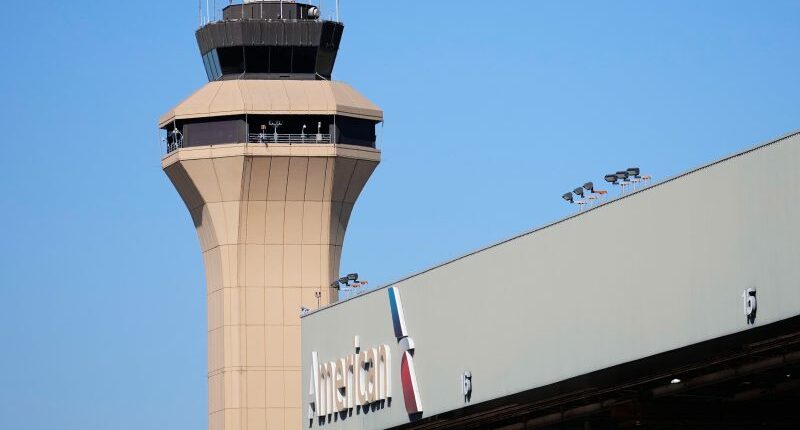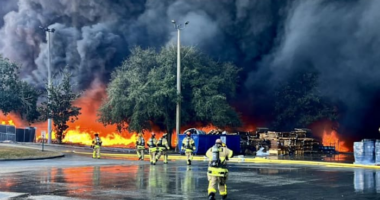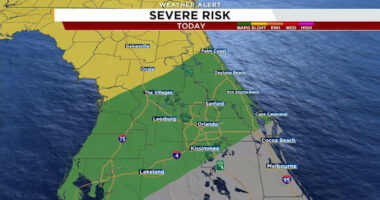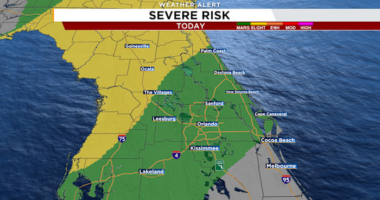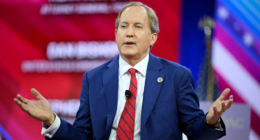Share this @internewscast.com

As the government shutdown dragged into its second month, U.S. airports faced ongoing flight delays on Sunday, primarily due to a shortage of air traffic controllers. Newark Liberty International Airport in New Jersey was particularly affected, with delays stretching between two and three hours.
The Emergency Management office of New York City announced on X that disruptions at Newark often have a cascading effect on other airports in the area.
Travelers flying through New York were advised to brace for schedule alterations, gate delays, and potential missed connections. The social media update emphasized the importance of checking flight statuses before arriving at the airport and being prepared for extended waiting periods.
Airports across the country, including George Bush Intercontinental in Houston, Dallas Fort Worth International, and Chicago O’Hare, were also plagued by numerous delays and occasional cancellations. Major hubs in San Francisco, Los Angeles, Denver, and Miami experienced similar issues, as reported by FlightAware.
By Sunday evening, FlightAware recorded 4,295 delays and 557 cancellations for flights within, into, or out of the U.S., though not all were linked to the controller shortage. Prior to the shutdown in July, approximately 69% of flights were punctual, with a cancellation rate of 2.5%.
U.S. Transportation Secretary Sean Duffy has cautioned that travelers should expect increasingly frequent flight disruptions if air traffic controllers continue to go unpaid.
“We work overtime to make sure the system is safe. And we will slow traffic down, you’ll see delays, we’ll have flights canceled to make sure the system is safe,” Duffy said Sunday on CBS’S “Face the Nation with Margaret Brennan.”
He also said he does not plan to fire air traffic controllers who don’t show up for work.
“Again when they’re making decisions to feed their families, I’m not going to fire air traffic controllers,” Duffy said. “They need support, they need money, they need a paycheck. They don’t need to be fired.”
Earlier in October, Duffy had warned air traffic controllers who had called in sick instead of working without a paycheck during the shutdown risked being fired. Even a small number of controllers not showing up for work is causing problems because the FAA has a critical shortage of them.
The Federal Aviation Administration said Friday on X that nearly 13,000 air traffic controllers have been working without pay for weeks.
Staffing shortages can occur both in regional control centers that manage multiple airports and in individual airport towers, but they don’t always lead to flight disruptions. According to aviation analytics firm Cirium, flight data showed strong on-time performance at most major U.S. airports for the month of October despite isolated staffing problems throughout the month.
Before the shutdown, the FAA was already dealing with a long-standing shortage of about 3,000 air traffic controllers.
